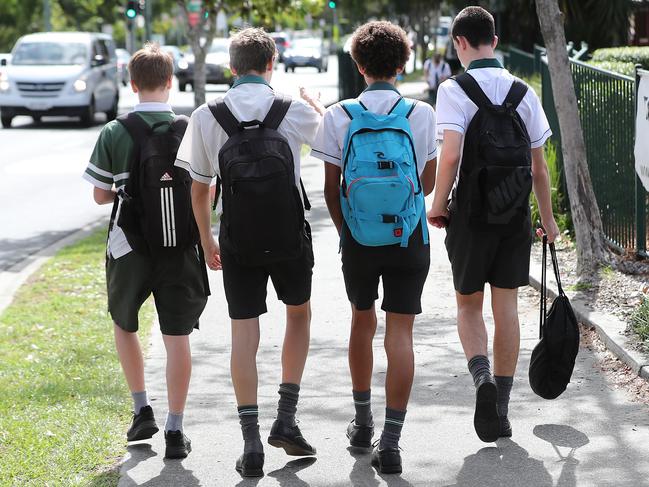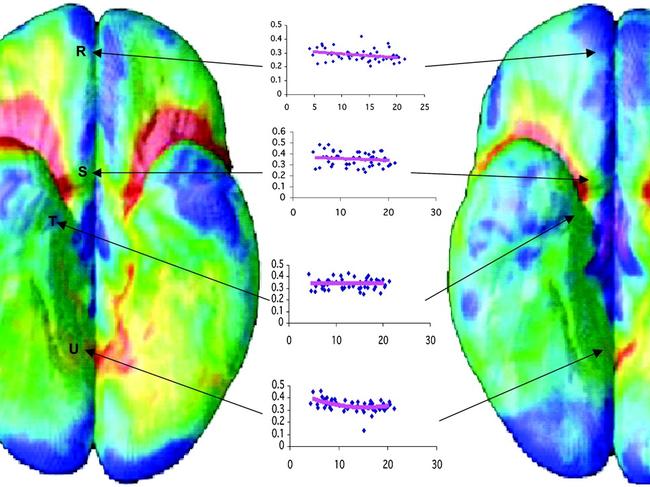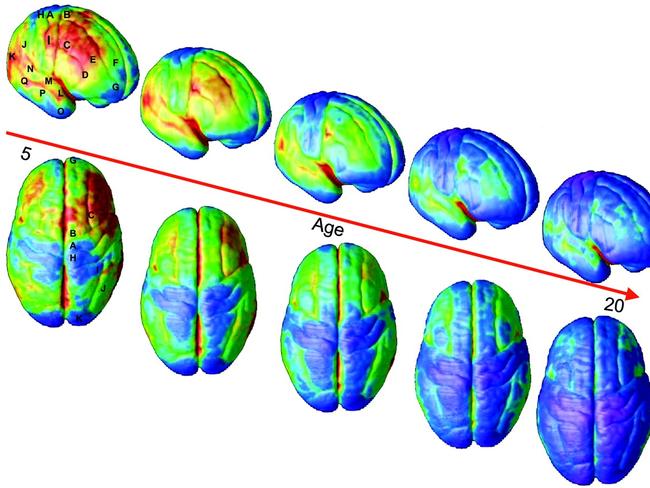How to help your child succeed in high school
With 300,000 students starting secondary school next week nationwide, experts warn parents it is a key time for forming crucial social networks and coincides with dramatic changes in the brain.
National
Don't miss out on the headlines from National. Followed categories will be added to My News.
Starting high school can be as traumatic as some of life’s most stressful events such as moving house, starting a new job, parents divorcing or a pet dying, according to experts.
Getting into the ‘wrong crowd’ can also have long-term consequences but students who have the right support at this critical time can see improved levels of attendance and academic performance later in school.

With 300,000 students starting secondary school next week across the country experts warn parents it is a key time for forming crucial social networks and coincides with dramatic changes in the brain.
“There is quite a bit of research on the impact of transition on future alcohol and drug use,” education consultant Paul Dillon said.
“Parents are not aware of the importance of that time period – it can be literally first five to six weeks.”

Mr Dillon, who is the Director of Drug and Alcohol Research and Training Australia (DARTA), and speaks in schools across the country, said the fall out as students find friends and settle into social groups can be significant.
If pre-teens struggle to get a foothold, it can lead to lower self-esteem, a negative attitude towards learning and poor resilience; all risk factors for alcohol and drug use.
“Young people gravitate to young people who have similar values and viewpoints but what can happen is they may want to go into a group that might reject them, and then they may find themselves in a group that isn’t a match but willing to accept them,” he said.
MORE NEWS
‘Love you Dad’: PM’s father passes away
Aussie patient urgently tested for deadly China virus
‘Putrid’: Man charged after savage kangaroo attack
Mr Dillon said parents can make sure they play an active role, and not assume their pre-teens don’t need them.
“Engagement is incredibly important – keep talking to your child,” he said.
Developmental cognitive neuroscientist Dr Megan Spencer-Smith, from Monash University, said while students were wrangling with new social dynamics, their brains were undergoing radical change.
“It is a time of really important neurological changes that are occurring, in part to do with a process called pruning which means that those connections that aren’t being used are going to go away.

“This is a really important part of development because it means that the things we do at this time really impact on our development in terms of neurological changes.”
She said starting high school can count as one of the most demanding events in life due to the enormous environmental, social and biological changes the student is going through.
“It is more stressful than starting a new job, more like moving house, a pet dying, parents getting divorced,” she said.
But Australian Catholic University’s education lecturer Dr Amina Youssef-Shalala said the pre-teen developmental changes can have a positive trickledown effect.
“For many pre-teens approaching adolescence they are more likely to process information through their emotions before other parts of the brain and that’s why they engage in risk taking behaviour,” she said.
“But it can have a positive effect later on in life because it is a period of exploration, you learn most effectively from your own errors. There are amazing changes in the brain at this time and a lot of parents don’t realise that.”

She said it was a vulnerable time for the new high school students and for parents to keep a closer eye on any irregular behaviour that could indicate learning difficulties or social issues
“If there is a large change in how they are thinking and their behaviour I would try and deal with it straight away, but don’t be too over-the-top either and remember most children are able to do problem solving themselves,” she said.
Mr Dillon agreed and warned parents to remember most young people will need some prompting.

“Kids are too embarrassed to say they are not fitting in, they don’t want to disappoint their parents – you don’t want to tell your parents people don’t like you,” he said.
“If they are not willing to give away anything then that is probably a sign to ask a few more questions and get involved.”
Mr Dillon said all school sectors now realised the significance of getting the transition right and have a number of measures in place to help kids haven’t found their place.
“Schools now realise how important this is and how to engage with parents as much as they possibly can.
Dr Lynette Longaretti from Deakin School of Education said research has shown successful transitioning depends on academic preparation, emotional stability, ability to make friends, having a sense of belonging and co-operation between families and schools.
“When young people move from primary school to secondary school they experience considerable changes regarding expectations placed on them as well as changes to the structure of their environment,” she said.
“Some research has suggested that transitioning to secondary school in particular can be challenging to young people compared with other experiences.”
Don’s miss tomorrow’s helpful guide with tech tips and the latest gadgets to get your kids back to school.
